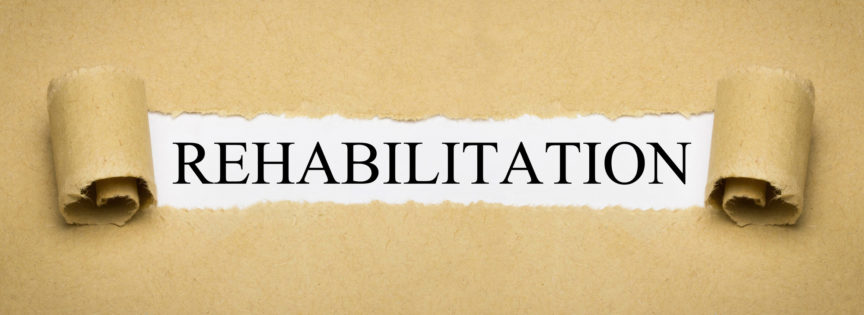Addiction is already difficult. Choosing a rehab program can be an anxiety-inducing process on top of that struggle.
The options for people seeking treatment range. They roughly break down into inpatient or outpatient care. Where you go will depend on your needs and comfort level.
Before making a decision on a rehabilitation program, you’ll want to weigh all your options.
Read more to learn about the pros and cons of inpatient and outpatient rehab.
Inpatient Rehab
During inpatient rehab, the individual stays in a facility for treatment. The duration of care will depend on your level of addiction. Most inpatient rehabs require patients to stay in the center for three weeks to ninety days.
The specifics of the program will depend on your medical condition and needs.
Patients in rehab facilities often undergo a “detox” process. This happens before the start of the program. The detoxification period may involve certain medications to help with withdrawal.
Pros
Inpatient rehab has the advantage of providing no distractions. Being in the outside world sometimes derails recovery. In an inpatient facility, the entire focus is on beating addiction.
In a center, there’s also no access to alcohol or substances. This means there are fewer triggers for relapsing.
Inpatient treatment is longer and more intensive which produces a higher chance of success in recovery.
Professionals monitor and care for patients at all hours. This is beneficial for people who are recovering from long-term substance abuse.
Some treatment centers also have specialized services beyond therapy. These might include yoga, meditation or other forms of exercise.
For someone who can afford one, there are luxury programs. These offer high-quality accommodations and facilities for maximum comfort.
A benefit of inpatient treatment is the routine emphasis on counseling and mental health. Each program differs but all involve some form of therapy. These include group and individual sessions with a counselor.
Cons
One disadvantage to inpatient treatment is that you’re restricted to a particular facility. You have less contact with friends and family, and you’re discouraged from leaving at all.
This means that individuals often have to pause their family lives and jobs. Since the primary focus is on recovery, there’s very little access to the outside world.
One con of staying in an inpatient facility is the stigma surrounding addiction. Some people in recovery may feel a sense of shame or embarrassment for being in a rehab facility.
Individuals trying to decide between programs may find that cost is an important factor.
A con of inpatient care is that it can be expensive. Some insurance companies don’t cover the time spent in a rehabilitation center.
The cost will also depend on the quality and location of the particular facility.
Outpatient Rehab
Outpatient rehab doesn’t involve staying in a facility like inpatient rehab.
The person lives at home and continues with normal everyday duties such as work or school. They instead attend therapy sessions or meet with a psychiatrist for regular treatment.
Outpatient programs focus on mental health and sobriety.
Some outpatient individuals have already undergone inpatient treatment. In this case, the focus may be on how to reintegrate into their lives and resume responsibilities.
Pros
A major advantage of this type of care is that an individual can continue with their normal routine. There are fewer interruptions. An individual doesn’t have to leave a job or family to receive care.
One positive aspect of outpatient care is that a person can receive support from their family.
Outpatient programs offer a certain flexibility. Patients choose help that will fit into their daily schedule.
These programs center around therapy. Most individuals will do some form of counseling such as cognitive behavioral therapy. A well-known form of outpatient care is the program Alcoholics Anonymous.
You may meet weekly for a group session or an individual meeting with a professional. Regular counseling is a positive of outpatient programs because it builds community. People have the opportunity to forge relationships and connect with others in sobriety.
Another important advantage involves affordability. Outpatient rehab is sometimes more affordable than inpatient programs.
Cons
The greatest disadvantage of outpatient rehab for substance abuse is that there’s an increased risk of a relapse.
Living in the same environment you were in as an addict, while trying to recover, can be stressful.
The outside world exposes individuals to drugs and alcohol. It’s harder to resist cravings and desires when they’re readily available.
Individuals in outpatient programs also don’t have access to around-the-clock care. They may only see a therapist or counselor once a week rather than every day.
A drawback is that people with life-threatening complications might not receive proper care.
Outpatient care is not always ideal for people experiencing withdrawal symptoms. For instance, people with a history alcoholism may experience serious symptoms while withdrawing. These can include hallucinations or seizures.
Symptoms will depend on the type of substance abuse problem. The condition you’re in before seeking help will also be a factor.
Learn More
If you’re unsure whether you need treatment, take a look at these signs of addiction.
Many factors go into choosing between inpatient and outpatient rehab. The choice is up to you.
Before committing to a program, make sure to consider every factor. Ask yourself which environment will help you the best on your road to recovery. Every person is different in terms of what will benefit them.
There’s also plenty of support online for addicts looking to get sober. For more information and tips on recovery, visit us here.

